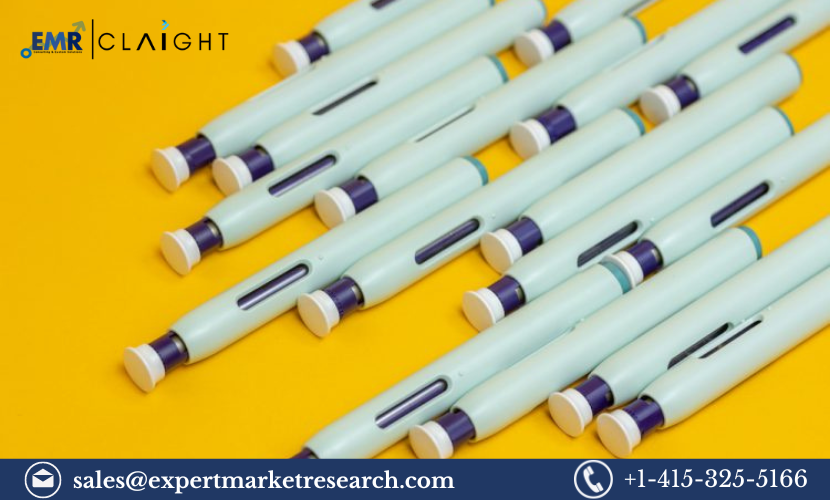Adalimumab is a monoclonal antibody used to treat autoimmune diseases such as rheumatoid arthritis, psoriasis, Crohn’s disease, and ulcerative colitis by targeting TNF-alpha (tumor necrosis factor). Originally developed as the biologic drug Humira by AbbVie, adalimumab’s patent expiration has opened the door for biosimilar versions, allowing other pharmaceutical companies to develop cost-effective alternatives.
Biosimilars are near-identical copies of biologic drugs and are rigorously tested to ensure they meet high standards of safety and efficacy. The cost of biologics is often prohibitive, but biosimilars offer significant savings, making them essential for healthcare systems seeking affordable treatment options. Given the high incidence of autoimmune diseases and aging populations worldwide, the adalimumab biosimilar market is expected to grow robustly, with a projected CAGR of 17.60% from 2024 to 2032.
2. Key Growth Drivers for the Adalimumab Biosimilar Market
a) Rising Prevalence of Autoimmune Diseases
- Autoimmune diseases like rheumatoid arthritis and psoriasis are increasing worldwide, largely due to improved diagnostic methods and changing environmental factors. This growing patient population fuels the demand for effective, long-term treatment options.
- Adalimumab biosimilars are particularly attractive for treating these chronic diseases because they are more affordable and accessible than original biologics, making long-term treatment more feasible.
b) Aging Global Population
- With age, the risk of developing autoimmune and inflammatory diseases increases, especially rheumatoid arthritis and osteoarthritis. The United Nations projects that the global population aged 65 and older will double by 2050, driving up the demand for treatments like adalimumab.
- The elderly population often requires accessible, long-term therapies, and biosimilars provide a cost-effective option to meet this demand.
c) Government and Regulatory Support
- Many governments recognize the potential of biosimilars to reduce healthcare costs, especially in public healthcare systems. Policies in regions like the European Union encourage faster approvals for biosimilars and often subsidize their use.
- In countries like India and South Korea, regulatory authorities have introduced initiatives to promote biosimilar production and availability, further supporting market expansion.
d) Healthcare Cost-Containment Efforts
- The financial burden of biologics on healthcare systems has been a long-standing challenge. Biosimilars, which are generally priced 15-30% lower than their originator counterparts, present a sustainable option for healthcare providers and insurers. In fact, many hospitals and insurance providers incentivize the use of biosimilars to cut costs.
3. Challenges in the Adalimumab Biosimilar Market
a) Stringent Regulatory Requirements
- Unlike generic drugs, biosimilars face rigorous regulatory scrutiny to ensure they match the safety, efficacy, and quality of the original biologic. Regulatory pathways vary significantly across regions, leading to high development costs and longer approval times.
- Companies must invest heavily in clinical trials to meet these standards, which can be a barrier, especially for smaller players.
b) Market Penetration and Patient Perception
- Despite cost advantages, many patients and healthcare providers are hesitant to switch from original biologics to biosimilars due to concerns about efficacy and safety.
- Educating healthcare providers and patients on the equivalency of biosimilars remains a challenge, and efforts are underway to improve biosimilar acceptance through awareness campaigns and patient advocacy.
c) Patent and Legal Complexities
- The expiration of patents is a critical factor in the entry of biosimilars into the market. However, originator companies often take legal measures to delay biosimilar approvals, impacting the speed of market expansion.
- Patent disputes and “pay-for-delay” strategies can hinder biosimilar availability, limiting options for patients and prolonging healthcare costs.
d) Competitive Pressures and Price Erosion
- As more biosimilar companies enter the market, intense competition can drive prices down. While this benefits patients, it places financial pressure on manufacturers, who may struggle to sustain profitability amidst lower margins.
4. Key Players in the Adalimumab Biosimilar Market
The adalimumab biosimilar market is populated by both established pharmaceutical giants and emerging companies. Key players are investing in research, expanding production capabilities, and pursuing partnerships to gain a competitive edge.
- Alfred E. Tiefenbacher (GmbH & Co. KG): Known for its focus on quality, Tiefenbacher has increased its production capacity to support global adalimumab demand, with a reputation for stringent quality control and research.
- Amgen Inc.: As one of the most significant names in biosimilars, Amgen has a strong portfolio and has made strategic acquisitions to solidify its market position. Amgen’s research-driven approach and commitment to innovation give it a competitive advantage.
- Boehringer Ingelheim Pharmaceuticals, Inc.: With a focus on R&D, Boehringer is known for its collaborations with other companies to advance biosimilar production. The company is expanding its footprint in the global biosimilar market.
- Glenmark Pharmaceuticals Limited: Glenmark is focused on emerging markets, investing heavily in biosimilar technology to make high-quality treatments available to more regions.
- Cadila Pharmaceuticals Ltd. and Torrent Pharmaceuticals Ltd.: Both companies have expanded their production capacity and invested in biosimilar research, focusing on cost-effective solutions for global healthcare needs.
- Reliance Life Sciences Private Limited: Known for its commitment to expanding biosimilar availability, Reliance Life Sciences focuses on producing high-quality biosimilars while investing in R&D to improve treatment efficacy.
5. Future Outlook and Projections (2024-2032)
The future of the adalimumab biosimilar market is promising, driven by continuous advancements and expanding accessibility. The market is expected to witness:
- Rising Adoption in Emerging Economies: Growing healthcare infrastructure and biosimilar awareness in countries like India, Brazil, and South Africa present significant growth opportunities for the adalimumab biosimilar market.
- Technological Innovations: The development of advanced biosimilar production technologies is likely to reduce production costs and accelerate market entry, making adalimumab biosimilars more affordable and accessible.
- Focus on Personalized Treatments: Biosimilar companies are working to align with the trend of personalized medicine, where treatments are tailored to individual patients’ needs. This could improve treatment efficacy and patient adherence.
- Increase in Strategic Partnerships: Companies are expected to continue forming alliances to bolster research, production capacity, and market penetration. Partnerships between pharmaceutical companies and healthcare providers can also streamline patient access to biosimilars.

